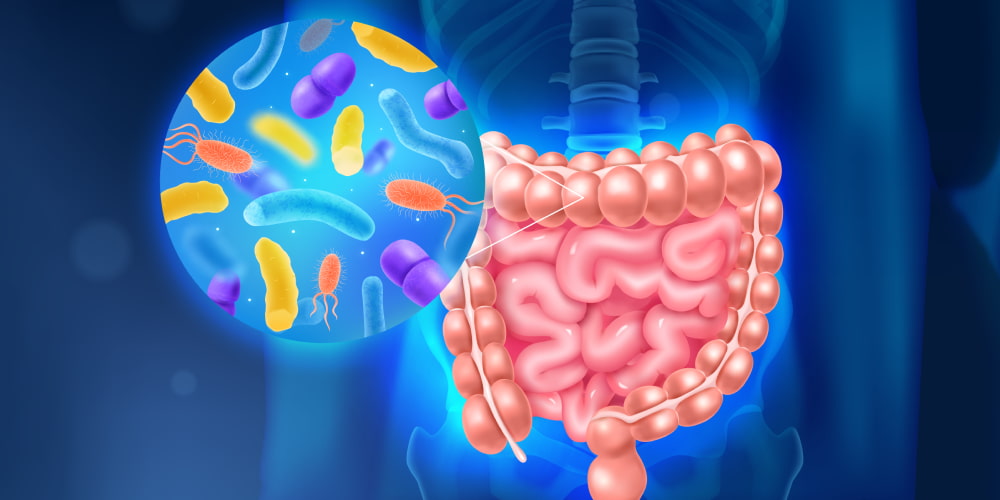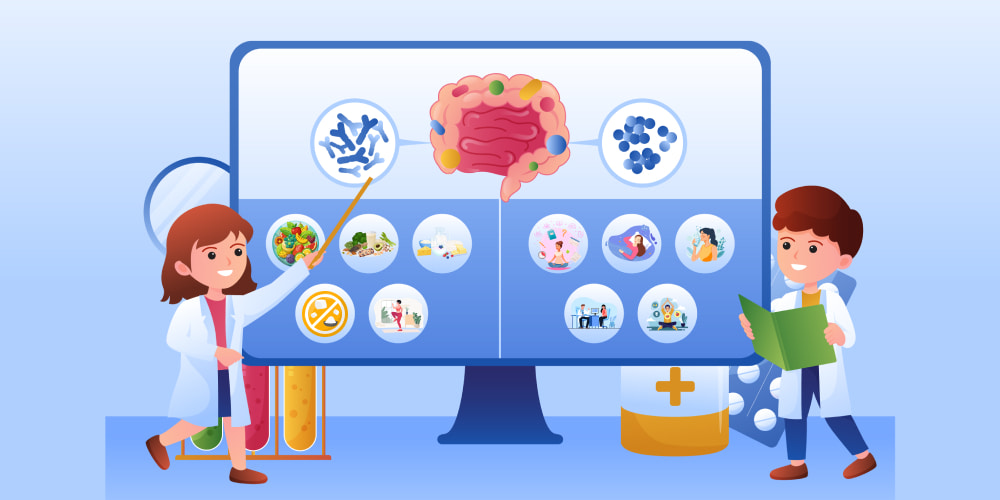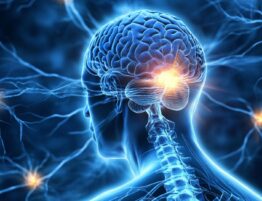Your stomach might be talking to your brain more than you think. Scientists are finding a strong link between what happens in your gut microbiome and how your brain works. Researchers are increasingly focused on how this link contributes to neurological disorders like Alzheimer’s and Parkinson’s. These are progressive diseases that gradually impair brain function.
Think of your gut and brain as being on a special phone line, called the gut-brain axis. It’s like a two-way street. What goes on in your gut can change things in your brain, and the other way around. Scientists now believe that maintaining gut health may also support brain health.
In this article, we will talk about this intricate connection. We will focus on managing gut health tactics and future gut health directions.
Understanding the Gut Microbiome and Its Impact on Brain Health
Imagine your gut is like a busy city, filled with trillions of tiny living things called microbes. This is your gut microbiome. These microorganisms help you digest food, make vitamins, and even keep your immune system strong. A healthy, balanced gut ecosystem means good things for your whole body, including your brain. When your gut ecosystem functions properly, it supports cognitive function and helps protect against brain inflammation. Think of inflammation like a fire inside your body. Too much inflammation in the brain can cause problems.
But, when the balance in your gut ecosystem is disrupted, it can lead to health problems. Scientists are starting to think that this imbalance might play a part in brain diseases like Alzheimer’s and Parkinson’s. When harmful bacteria outnumber beneficial microbes in your gut ecosystem, it can negatively impact brain health.
How Gut Dysbiosis Contributes to Neuroinflammation
When your gut ecosystem is out of balance, it’s called dysbiosis. It’s like having too many harmful bacteria. This imbalance can make your gut lining leaky. Imagine your gut lining like a fence. When it’s strong, it keeps toxins out. But when it’s leaky, toxins can slip through into your bloodstream. This can trigger your immune system, causing inflammation all over your body, including your brain.
This brain inflammation, called neuroinflammation, is a big problem. It can damage brain cells and make it harder for your brain to work properly. This is a key part of how brain diseases start and get worse. So, keeping your gut ecosystem balanced is important for maintaining optimal brain function.
The Gut-Brain Axis: A Pathway for Cognitive Decline
Now, let’s talk about the special phone line between your gut and brain, the gut-brain axis. It’s like a super-fast messaging system. Your gut and brain are always talking to each other, sending signals back and forth. This communication is really important for keeping everything in sync.
When the gut-brain axis is compromised, it’s similar to a poor communication network. The messages get disrupted, and things start to go wrong. If your gut ecosystem is out of balance and causing inflammation, these inflammatory signals are transmitted directly to your brain. This can make it harder for your brain to think and remember things. It’s called cognitive decline.
Basically, if your gut is dysfunctional, your brain can become dysfunctional too. Keeping your gut healthy is like keeping that phone line clear, so your gut and brain can talk to each other properly and keep you healthy.
The Role of Prediabetes and Gut Health in Cognitive Decline
When you have prediabetes, your body has trouble using sugar. This means your blood sugar is higher than normal, but not high enough to be diabetes. This elevated blood sugar damages your blood vessels, even the small ones in your brain. Damaged blood vessels mean your brain gets less oxygen and food. Also, prediabetes causes your body to have low-level inflammation all the time. This inflammation can harm your brain. High sugar also makes “AGEs” (Advanced Glycation End products), which damage cellular structures.
Your Gut and Your Brain:
As we have said, your gut has lots of tiny living things called microbes. When you have prediabetes, the bad microbes take over. This is “dysbiosis.” An unhealthy gut allows toxins, such as lipopolysaccharides (LPS), to enter your bloodstream. This causes more inflammation. Your gut and brain talk to each other. When your gut health is compromised, this communication becomes disrupted. Good gut microbes make “SCFAs,” which are good for your brain. With prediabetes, you have fewer good microbes, and less SCFAs.
How They Hurt Your Brain:
The inflammation resulting from both prediabetes and gut dysfunction affects your brain. This “neuroinflammation” damages your brain cells and impairs cognitive functions like learning and memory. The areas of your brain responsible for memory and cognition are particularly vulnerable to this damage. This can make you have trouble thinking and remembering things. It might even make you more likely to get brain diseases as you get older.
Why This Matters:
This is particularly important because both gut health and prediabetes can be modified through lifestyle changes. By improving gut health and managing blood sugar levels, we may be able to prevent or slow the progression of cognitive decline. This is very important for keeping people healthy as they get older.
Managing Gut Health for Prevention of Neurodegenerative Diseases
The gut microbiome, often called our “second brain,” plays a pivotal role in overall health, influencing even neurological well-being. Emerging research highlights a strong link between gut microbiome imbalances and the development of neurodegenerative diseases. This section explores practical strategies to cultivate a healthy gut, which can potentially mitigate the risk of cognitive decline and neuroinflammation. By focusing on diet, lifestyle, and stress management, we can proactively support gut health and, in turn, brain health:
- Eat a Rainbow. Fill your plate with lots of colorful fruits and veggies. They’re rich in nutrients that promote healthy gut bacteria. Think of them as beneficial nutrients for your gut microbiome.
- Fiber is Your Friend. Fiber helps maintain gut motility. It promotes intestinal transit and supports digestive health. Whole grains, beans, and leafy greens are great sources of fiber.
- Probiotics Power. Probiotics are like introducing beneficial bacteria to your gut microbiome. You can find them in yogurt, kefir, and fermented foods. They help keep the balance right.
- Cut Back on Sugar and Processed Foods. These foods can promote the growth of harmful bacteria in your gut microbiome and can lead to health problems. Try to eat more whole, natural foods instead.
- Move Your Body. Exercise isn’t just good for your muscles; it’s good for your gut too! It helps keep your gut moving and reduces inflammation.
- Manage Stress. Stress can disrupt your gut microbiome. Try relaxing activities like deep breathing, yoga, or spending time in nature.
- Get Enough Sleep. Your gut needs rest too! Aim for 7-8 hours of quality sleep each night.
- Stay Hydrated. Drink plenty of water throughout the day. Water helps keep things moving smoothly in your gut.
- Talk to a Doctor. If you have concerns about your gut health, talk to a doctor or dietitian. They can give you personalized advice.
- Balanced lifestyle. Have a balanced lifestyle, with a healthy diet and exercise. It can help prevent neuroinflammation and cognitive decline.
Nurturing a healthy gut microbiome is a proactive step towards safeguarding neurological health. By adopting these simple, yet impactful, lifestyle changes, we can foster a thriving gut microbiome. Prioritize a diverse diet, regular exercise, stress management, and adequate sleep. It creates a foundation for both physical and cognitive well-being. A balanced approach to gut health empowers us to potentially reduce the risk of neurodegenerative diseases. It can promote a healthier, more vibrant life.
Future Directions in Gut Health and Neurodegenerative Disease Research
Researchers are conducting extensive studies on how modifying gut bacteria may benefit neurological health. They’re looking at things like:
- Probiotic Interventions. They’re testing different kinds of probiotics to see which ones are best at keeping our brains healthy. They aim to identify the optimal composition of beneficial gut microbiomes.
- “Fecal Transplants”. This might sound weird, but scientists are trying to help people with brain diseases by transplanting healthy gut microbiota from other people. This can help rebalance their gut microbiome.
- Special Diets. Researchers are studying diets that support healthy gut bacteria. They want to see if these diets can slow down or even stop brain diseases.
- Finding the Gut-Brain Signals. Scientists are trying to figure out exactly how the gut and brain talk to each other. They’re investigating the specific chemical and neural signals exchanged between these systems.
- Drug Development. Researchers are working on medications that can target the gut microbiome and help prevent or treat brain diseases like cognitive decline. This research aims to develop therapeutic approaches that restore optimal gut-brain communication.
The hope is that one day, we’ll be able to use what we learn about the gut to help people with brain diseases like Alzheimer’s and Parkinson’s. This represents a promising new approach to maintaining cognitive health and neurological function!













I've given up... the stress her office staff has put me through is just not worth it. You can do so much better, please clean house, either change out your office staff, or find a way for them to be more efficient please. You have to do something. This is not how you want to run your practice. It leaves a very bad impression on your business.
Please, leave your review
Write a comment: